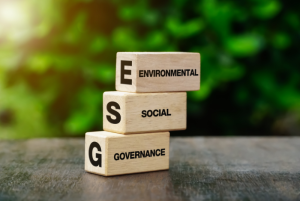Sustainability risk is usually applied to an environmental, social or governance (ESG) condition that could cause a negative impact on the value of the organisation, leading to the loss in the value of what has been invested in it. Sustainability Risk Management, SRM, is a strategy that aligns the way an organisation preserves the environment while sustaining its growth and competitiveness. In other words, it does not do business at the expense of the environment while reaping profits. SRM has been gaining traction in recent years as more organisations are beginning to focus on the environmental effects of their business processes.
This increased attention on how the business operates within the context of its environment is also being driven to a great extent by a rising awareness among shareholders, stakeholders and the community the business operates in, of the need to minimise environmental degradation while allowing business as usual. SRM also recognises that Environmental, Social and Governmental risks – as well as opportunities – can impact both business entities and the people who support them, and may appear in the form of sustainable, non-financial or extra-financial risks as well.
It starts with businesses wanting to make decisions that will ensure the organisation’s resilience and long-term value creation but which will not harm the environment, or result in adverse social or community impacts. Investors, regulators and other stakeholders are increasingly beginning to realise the role that sustainability plays in business, particularly in the light of the phenomenon of climate change, and the growing ecological damage that is affecting business processes and their profitability. This is driving some of the world’s largest organisations today to apply more stringent management to ESG matters.
Research indicates that sustainability factors can influence financial returns; there is also more willingness among shareholders to partner with firms seen as ESG- (or SRM-) ready. Organisational resilience is perceived as being higher in such companies, together with higher returns and greater stakeholder trust and confidence. But what does being ESG-ready mean? This references the 17 Sustainable Development Goals (SDGs) adopted by all United Nations member states in 2015, as the global agenda for Sustainable Development. The 17 SDGs are an exhortation for all developed and developing countries to be global partners.
The aim of this global developmental partnership is to end poverty and deprivation by applying strategies that improve health and education, reduce inequality and spur economic growth while tackling major issues like climate change and environmental degradation. Companies are thus encouraged to integrate the SDGs into their value chains as a means of better positioning themselves to mitigate ever-present, ever-growing risks. By doing so, they are more likely to better differentiate their brands; capitalize on market opportunities; attract, engage and retain talent; and access a wider pool of investors and business partners.
Today, organisations and their stakeholders are very much aware that social or environmental conditions may have negative impacts on the firm. Sustainability risks are long-term risks; mitigating them requires an awareness of what future challenges are likely to confront the organisation. ESG is also appearing increasingly at the top of board agendas globally, underscoring further the growing awareness of shareholders and stakeholders of the role it plays in corporate performance and organisational competitiveness – and in the firm’s overall sustainability.
Boards and management are beginning to understand the need to integrate sustainability at every level of risk management, and are making decisions that move away from being exclusively profit-centred, to ones that take into consideration the wider horizons of prioritising human rights, protecting the environment and ensuring equality, diversity and fairness, among other factors. There have already been positive outcomes; research indicates that companies with more mature risk management practices and could apply SRM principles appropriately, were likely to enjoy a competitive advantage.
They were capable of earning three times more than other companies which had less mature risk management practices. Like all risks, sustainability risk needs to be properly identified and assessed before it can be effectively mitigated, and it takes a certain level of organisational maturity to achieve this. Organisations should take an SRM approach which firstly determines what sustainability means within their respective contexts, and align this with the resources available, as well as identify emerging risks which could come about due to their alignment with ESG/SDGs.
Sustainable risk assessment could be made part of strategic planning so that the opportunities which arise in the course of identifying risks may be incorporated into the organisation’s strategy. There are a number of ERM principles which can be successfully applied to SRM; SRM also becomes more do-able when the organisation realises the relationship between ERM and sustainability. Integrating SRM into the ERM process can go a long way towards identifying environment-related issues and related emerging risks before these reach a tipping point and affect other processes, or the firm’s reputation.
The more SRM is integrated into the ERM process, the better the quality of decision-making will become, producing a positive knock-on effect in the process. SRM seeks to link compliance and sustainability, while keeping a close eye on the firm’s bottom line. Managing sustainability risks may also offer opportunities which may not have been apparent, initially. The process of mitigating the risks may point out new possibilities. Boards are also beginning to recognise how applying SRM could also increase operational efficiency, supply chain resilience and mitigate risks, while attracting and retaining the right talent to ensure organisational continuity and sustainability.


























